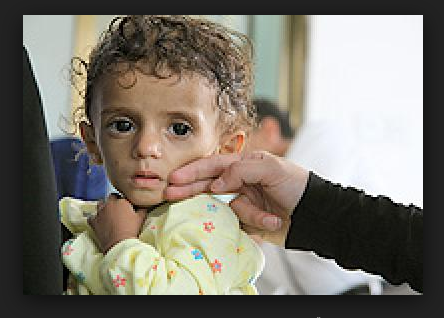Epidemics kills Yemenis as war continues
YemenExtra
By: Mona Zaid
The war in Yemen has completely decimated the health care system. More than half of the people have little access to basic health care, and less than 45% of the hospitals work and the health personnel cannot cope with the needs.
As the war entered its Fifth year, Yemen’s humanitarian needs increased tremendously, with 22.2 million Yemenis – nearly three in every four people – reliant on humanitarian aid to survive. On top of this, dengue fever, malaria, diphtheria and cholera began to spread fast.
Health system in Yemen has been facing many challenges in the last decade along with the complex emergency situation that includes widespread conflict-driven displacement and a slow-onset crisis in food security, malnutrition and outbreak of communicable diseases particularly in neglected areas.
Malnutrition and extremes of ages make refugee population vulnerable due to low immunity, favorable environmental factors help in creation and propagation of epidemics.
Survival was a miracle not only because of endemic disease, dirt and filth, concomitant poor hygiene, and sanitation but also because of the primitive state of medical knowledge, thus, a large number of people were prone to infections for a sustained duration of time, within a constrained health system.
The places where the war is active are the ones most at risk for increase of diseases. The war-torn Arab country has also been suffering from a severe diphtheria outbreak .
The disease, which has not been seen in Yemen for 25 years, has affected 312 people and killed 35. It has not spread explosively, as cholera did, but diphtheria outbreaks can affect many thousands, and there is a global shortage of diphtheria anti-toxin.
Yemen has enough for 200 to 500 patients, Mr Poncin said. Ships and planes carrying humanitarian supplies have been unable to reach Yemen since the Saudi-led coalition imposed a blockade .
Former manager of UNHCR Yemen Refugee Health Project Judith Brown says the assault on Hudaydah has worsened famine and seeded up the spread of diseases like cholera and others. Dengue fever is endemic in Yemen, with outbreaks reported in a number of governorates over the last 10 years. This year, however, the response to the current outbreak has been fraught with challenges as a result of the ongoing insecurity and a near-collapse of the health system.
In addition, recent heavy rainfall, disruption of water supplies and scarcity of safe drinking-water have contributed to the spread of mosquitoes in the affected areas, resulting in an upsurge in suspected dengue cases.
As part of a dengue fever preparedness and response plan, WHO is working with the Ministry of Public Health and Population and partners to provide intravenous fluids and supportive treatment to functioning health facilities in affected areas; conduct spraying activities in Al-Hodaidah, Aden and Hadramout governorates; and provide rapid response training courses for doctors and health workers, including case identification and management for dengue fever.
WHO has also distributed information, education and communication materials to inform affected communities on how to protect themselves against dengue fever and other vector-borne and water-borne diseases.
By December 2017, the outbreak of cholera in Yemen had infected a staggering million people. Despite being a completely treatable disease, thousands of people have died from the disease.
In addition to cholera, other contagious diseases such as diphtheria are spreading in the country. In a country where supplies and medical care are scarce, a lack of access to drinking water doesn’t bode well for the ongoing health crisis.
More than 80% of Yemen’s population lacks food, fuel, drinking water and access to health care services, which makes it particularly vulnerable to diseases that can generally be cured or eradicated elsewhere in the world.
The cholera figure is almost certainly exaggerated, but that does not diminish the scale and complexity of the humanitarian crisis, said Mr Marc Poncin, Yemen emergency coordinator for aid agency Médecins Sans Frontières.
Cholera flared up in April 2016 and spread rapidly, killing 2,227 people, the death rate has fallen dramatically and, recent cases are probably diarrhoea, Mr Poncin said.
“It’s probably unavoidable. We need to be ready to face another big epidemic,” said Mr Poncin, adding that cholera may become a long-term burden as it has in Haiti.
Cholera in Yemen is a man-made disaster, and its spread and casualties are tied to the politics of the war. Aerial bombing by the Saudi-led coalition in areas have damaged hospitals, public water systems and sewage plants.
More than half of health care facilities have fully or partly closed. Doctors, nurses and ambulance drivers have gone without salaries for months. Sanitation has worsened. People live amid sewage. Acute watery diarrhea has been more fatal in areas controlled by the rebels than in areas controlled by the government.
Yemen deserves better. Looking at four years of destroyed infrastructure, starvation and unchecked spread of disease, the humanitarian needs have increased from one year to another at an insane rate. Peace is the only thing that will allow us to rebuild our country; the Yemeni people have been suffering for far too long.
Peace has to take the place of destruction, development and infrastructure have to take the place of starvation, laughter and happiness and normality should take the place of the endless stories of sadness and destruction and death, Yemenis deserve more than this, Yemen deserves better.

